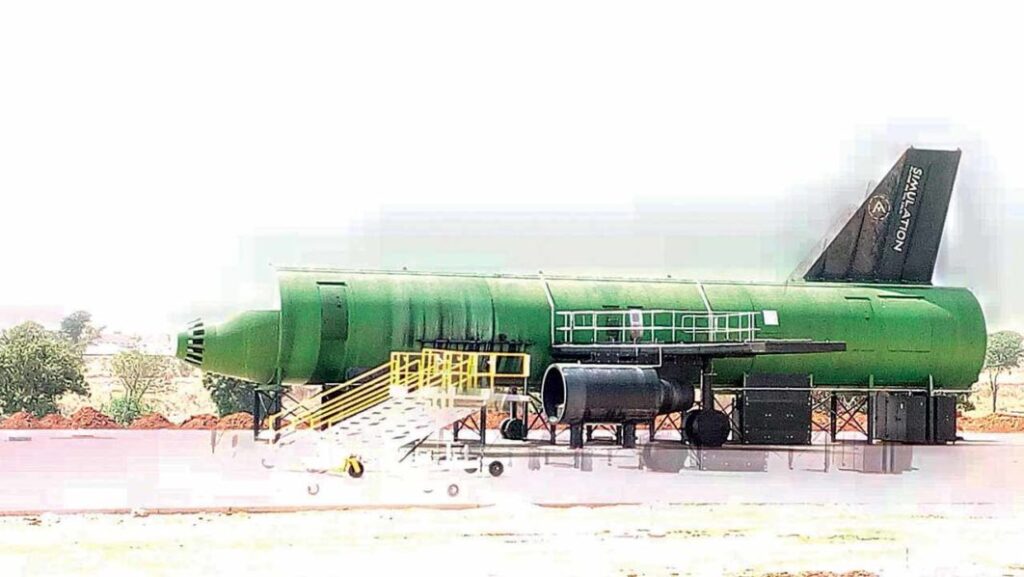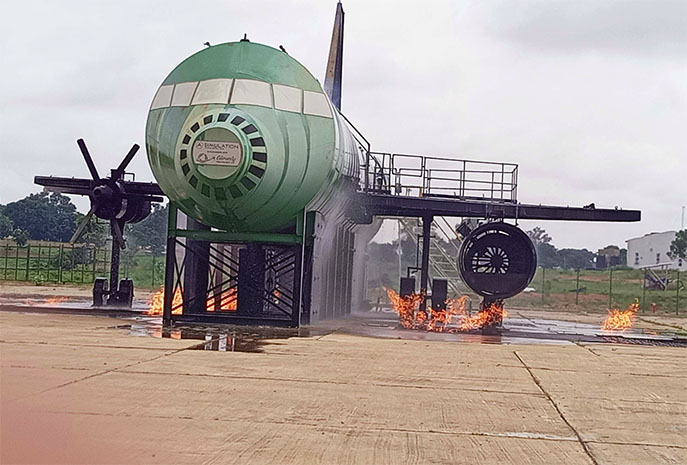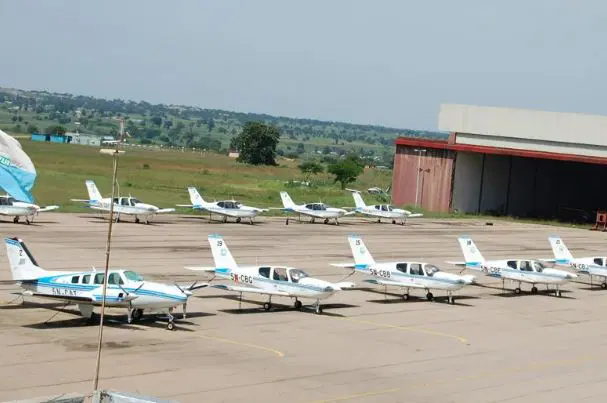The Nigerian College of Aviation Technology (NCAT) in Zaria has issued a spirited appeal to the Federal Government and aviation authorities: to urgently enhance funding and equip the institution with modern facilities. This bold call aims to ensure NCAT lives up to its potential as a premier aviation education hub — capable of servicing not only Nigeria but the broader African aviation sector and beyond.
Table of Contents

A Vision Redefined by Leadership
Under the leadership of Rector Dr. Danjuma Ismail, NCAT has undergone significant deceleration and repositioning. He notes that the college, although recognised as one of the largest and most comprehensive aviation institutions in the region, still lacks key infrastructure and equipment needed to match its ambitions.
“On taking office,” Dr. Ismail states, “I recognised the enormous untapped potential here. We have the capacity to be a continental training hub, but only if we match our vision with resources, manpower and modern equipment.”
Growing Pan‑African Partnerships
NCAT’s appeal is grounded in its growing roster of international training collaborations. The institution currently engages with countries including Kenya, South Sudan, Egypt and Ethiopia. Recently, it signed a Memorandum of Understanding (MoU) with South Sudan’s Civil Aviation Authority, agreeing to train aviation professionals in Zaria. Similarly, trainees from Egypt and Francophone African nations have spent extended periods on NCAT’s campus for intensive training courses.
Dr. Ismail emphasises that while NCAT may not yet match every peer in infrastructure sophistication, it surpasses many in scale and breadth of programming. All courses offered are compliant with ICAO standards—yet, without further investment, its ability to fully meet global demand remains limited .
Critical Gaps: Equipment & Revenue
Although federal funding remains NCAT’s backbone, Dr. Ismail highlights persistent financial shortfalls. He says that the college faces funding challenges common across public institutions, but insists these gaps can be bridged through enhancing internally generated revenue, particularly through expanded service offerings to international trainees.
A key bottleneck is outdated or inadequate equipment. Currently, NCAT possesses a Boeing 737 flight simulator—a vital asset that reduces capital flight by allowing Nigerian pilots to renew their licences locally. Joint ventures with international clients affirm its utility, but NCAT has only one such simulator. Dr. Ismail argues that acquiring additional simulators for popular aircraft types would not only bolster training capacity but also dramatically improve financial independence and turn the college into the first fully self‑sustaining aviation training centre in Africa.
Addressing Operational and Infrastructure Deficiencies
Beyond simulators, the institution also confronts infrastructural constraints. According to detailed interviews with various media outlets, NCAT’s high demand from international trainees is blocked by a lack of appropriate dormitories and facilities. Many buildings date back to the 1960s and are inadequate for modern standards and expectations.
NCAT is currently repurposing the recently acquired Zaria Hotel into four-star accommodation, intending to meet the expectations of international and high-experience professionals. The transformation aims to offer a comfortable housing alternative to basic hostel rooms, especially for seasoned pilots and foreign trainees .
Staff Retention: The Hidden Crisis
Another major challenge NCAT faces is staff retention. Dr. Ismail candidly describes NCAT as the worst-paying agency in the Nigerian aviation sector. Salaries remain lower than peer institutions, prompting trained instructors and technical personnel to migrate to private airlines and agencies for better pay.
In response, NCAT is pursuing bonding agreements with staff and linking training certificates to institution commitments, ensuring that trainees remain with NCAT for a prescribed period before seeking external employment. The college is also engaging with the Salaries and Wages Commission to advocate for a salary structure aligned more closely with industry standards, akin to what the Petroleum Training Institute enjoys in the oil sector.

Projected Impact on Capacity & Revenue
The promise of enhanced funding and equipment goes beyond infrastructure—it’s about transforming NCAT into a revenue-generating engine. Once the Boeing 737 simulator is certified by the NCAA and becomes fully operational, NCAT expects to attract significant international patronage, including from Asia, by reducing the costly need for foreign pilots to travel to Dubai or Europe for licensing training.
Dr. Ismail foresees that expanding simulator capacity for common aircraft types like the CRJ regional jets and Dash 8 turboprops—which are in high demand across Africa—would feed rising enrolment numbers and unlock economies of scale. International clients, especially from Francophone and English-speaking African countries, could be drawn in with competitive pricing and robust local infrastructure.
Strategic Infrastructure Upgrades in Progress
NCAT is forging ahead with several strategic steps:
- A dedicated task force has been established with a three-month mandate to resolve operational challenges around the Boeing 737 simulator and get it certified and back into parallel service.
- Construction is underway or planned to upgrade classrooms, technical labs, and lodging structures across campus. The conversion of Zaria Hotel into a training and accommodation facility is a cornerstone of this program.
- Future runway expansion at the adjacent Zaria airport is expected to be completed in phases by the end of the year. Once finished, this will allow NCAT to accommodate larger commercial aircraft and handle increased traffic, further positioning the college as a viable regional aviation hub.
Broader Economic Implications
Dr. Ismail underscores NCAT’s potential as a foreign exchange earner, projecting that with functioning simulators, international clients—who currently travel abroad—will instead come to Nigerian soil. The resulting dollars spent locally for training fees and lodging represent a handsome economic benefit for the country.
Moreover, expanding NCAT’s capacity supports national goals for skills development in the aviation and aerospace fields. Producing more certified pilots, air traffic controllers, maintenance engineers, and cabin crew contributes directly to the strength of Nigeria’s aviation industry and labour market.
What NCAT Needs to Deliver—A Call to Action
1. Enhanced Government Funding: NCAT needs a significant boost to its budget to support technical upgrades, infrastructure modernisation, and staff welfare improvements.
2. Modern Equipment Acquisition: Additional flight simulators for major aircraft types (e.g., B737, CRJ, Dash 8), firefighting simulators, ICT infrastructure and updated training tools.
3. International‑Standard Infrastructure: Renovated classrooms, technical labs, faculty housing, and guest accommodation—including converting the Zaria Hotel into a four‑star facility.
4. Staff Compensation Reforms: Salary restructuring aligned with aviation industry benchmarks, retention bonds for staff, and better incentives to reduce attrition.
5. Certification and Compliance: Full operationalisation and certification of dormant simulators and collaboration with the NCAA to fast-track approvals.
6. Revenue Diversification: Leveraging regional and international demand for NCAT’s services to generate internal revenue, reduce dependency on federal funding, and build sustainability.

A Milestone in Africa’s Aviation Education
If NCAT secures the resources and executes its plans, it stands to become the first aviation training centre in Africa fully equipped to handle major training demands across aircraft types and professional specialisations. That distinction would elevate Nigeria as a continental aviation leader.
With certified simulators, upgraded facilities, an expanded runway and modern housing, NCAT can attract thousands more trainees, shorten capital outflows for pilot licensing, and generate valuable foreign exchange revenue.
Ultimately, Dr. Ismail’s vision is clear: transform NCAT into a self-sustaining centre of aviation excellence, fuelled by improved funding, cutting-edge equipment and strategic infrastructure investments. But turning that ambition into reality requires backing—and fast.
Join Our Social Media Channels:
WhatsApp: NaijaEyes
Facebook: NaijaEyes
Twitter: NaijaEyes
Instagram: NaijaEyes
TikTok: NaijaEyes




